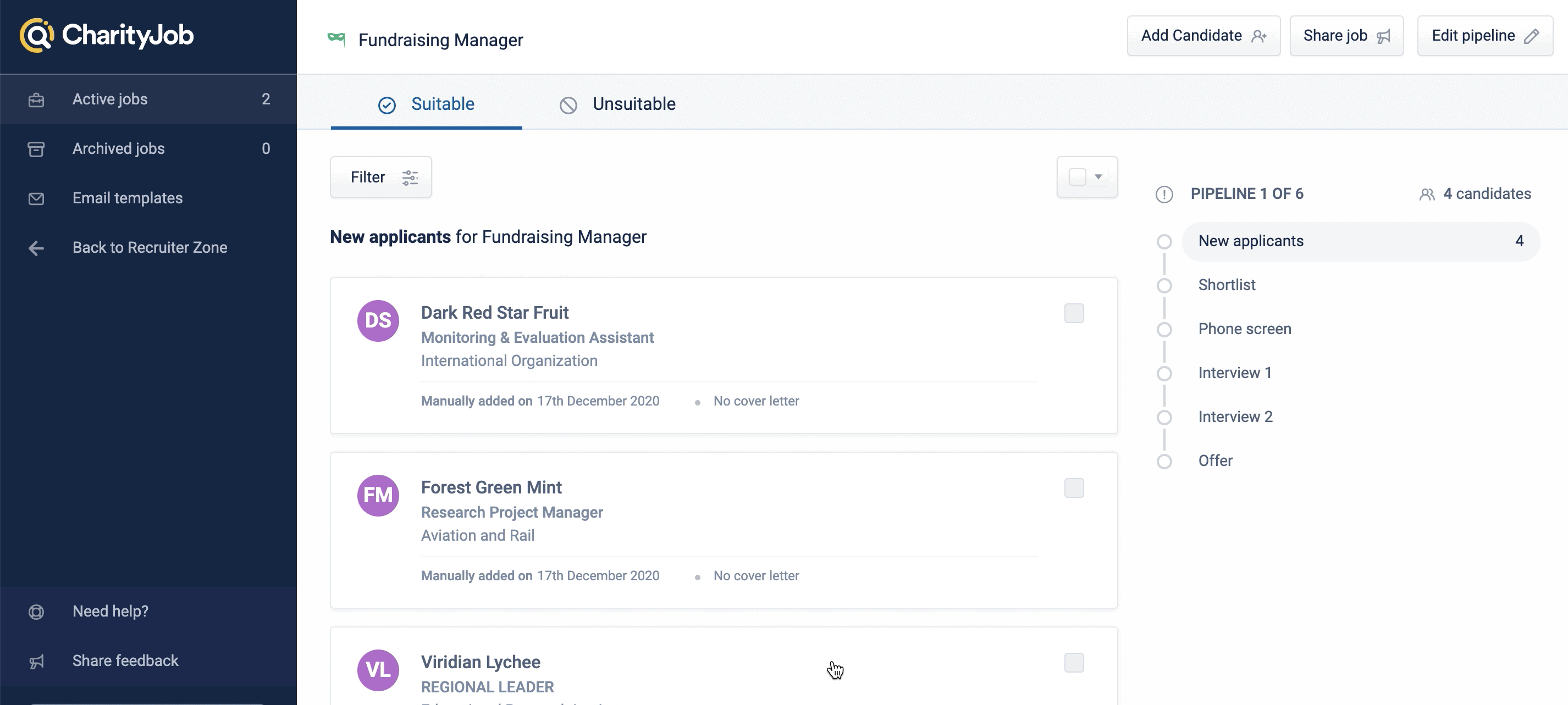Article menu
Charities are increasingly concerned with how to recruit in the fairest and most effective way. The problem is that some people are unfairly penalised when it comes to recruitment. Applicants from ethnic minorities are less likely to be successful in applications. In fact, on average people from ethnic minorities have to send 60% more applications to get a positive response. The sad fact is that you are less likely to be invited for an interview if your name is associated with the ethnic minority. That’s regardless of how good your application is.
Bias stops charities hiring the best people for the job. It is very difficult, maybe impossible, to remove bias from people. Just asking people to not be biased doesn’t stop them from being biased. Professor Iris Bohnet is right in saying it’s much better to remove bias from processes.
One way to debias processes, and to recruit more fairly and effectively, is to use ‘anonymous recruitment’.
What is anonymous recruitment?
Anonymous recruitment, also known as blind hiring, among other terms, is a method of recruiting where the personal details of the applicant, such as their name and email address, are hidden from those making hiring decisions. Anonymous recruitment is used by bodies such as the UK Civil Service, and Applied, whose work is informed by the Behavioural Insights Team.
The idea behind blind hiring originated from putting auditioning musicians behind a screen to assess their ability, without those judging being able to see them. Using anonymous recruitment means that recruiters will make decisions based on the quality of the application and not be swayed by other factors, such as the applicant’s sex or ethnicity.
An equal chance for all applicants
Research shows that ethnic minority applicants are less likely to receive a positive response to their applications, and are less likely to get jobs or get good jobs. Not only that, but some people are seen as more likely to ‘fit in’, which is not the same as their ability to do the job.
It’s not only a matter of someone’s ethnicity. Whether the applicant is male or female should make no difference to their ability to do a job. But sometimes people have an image of what the person who gets the job should be like, and this often disadvantages women.
Removing all identifying information from applicants is seen as a way to give equal opportunities to all applicants. Research indicates that this is supported by both ethnic majority and ethnic minority people. Indeed, getting a job in this way can raise the esteem of ethnic minority applicants.
“ What I would say to that, as a black woman, is that I don’t want to be a tick box. If I can’t do the job, don’t give me the job. But I do want a fair chance to get the job. So what I feel is that in recruitment, we should all be numbers. So I should be 8679, or some nonsense like that. I think when people are recruiting, we all should be a reference number, we shouldn’t be a name. ”
Keep recruitment focused on the job
Anonymous recruitment is only fair if the assessment relates to the job itself. Another thing to consider is that asking about irrelevant things like culture or music disadvantages some people, usually those from less privileged backgrounds. Even tests deemed to be ‘procedurally fair’ that don’t focus on the job itself introduce bias. So keep your recruitment focused on the job itself.
There are other ways that bias can creep in. The ‘halo effect’ is where a recruiter is impressed by one piece of information, such as a previous employer, and overestimates that person’s ability as a result. Other details can introduce ‘affinity bias’ (they’re like me). Those less likely to get those opportunities initially are then disadvantaged again. But anonymous recruitment cannot be expected to overcome everything. It is a start, not the perfect answer.
Does anonymous recruitment actually work?
Essentially, yes. Research shows that, when done well, anonymous recruitment shifts the focus on to the skills and qualifications required for a role. Because someone’s name is hidden, the focus is inevitably on the merit of their application.
Research from Sweden shows that ‘anonymous application procedures’ increase the likelihood of both women and ethnic minority applicants getting an interview.
Anonymous recruitment is also supported by a great many people, including many who would benefit from it, because they feel it is fair. Dr Rakib Ehsan of the Henry Jackson Society think tank supports it because it reduces discrimination and makes the labour market more meritocratic.
It isn’t perfect, but nothing is. Keeping personal details hidden until an interview just risks allowing discrimination to take place then. Indeed, just getting to an interview isn’t enough. For candidates who get to the shortlisting stage, the composition of the shortlist itself can stop women getting hired. So more still needs to be done.
Overall, evidence indicates that anonymous recruitment levels the playing field for interview invitations, but can limit the scope for positive action or taking extenuating circumstances into account.
CharityJob’s anonymous recruitment
CharityJob introduced a free, optional anonymous recruitment tool within Applicant Manager, our applicant tracking system. This supports our aim to reduce bias in hiring decisions and help charities to hire the best people.
Here at CharityJob we use this method when we recruit, so we receive applications from pseudonyms like ‘Maroon Courgette’ and ‘Light Green Blackberry’. This means that we assess the applicant only on their application and nothing else. It may seem strange to refer to applicants in this way, but my experience has been that you get used to it pretty quickly. And if we want to make recruitment fairer, we are going to have to get used to doing some things a bit differently.

So far, 640 charities have posted more than 1,000 jobs using our anonymous recruitment feature. It’s available to anyone who posts a job with the ‘apply via CharityJob’ option. We asked users how they found it, and over 76% of respondents said it was good or very good. Find out more about our anonymous recruitment tool.
Ready to try it out? Post a job with CharityJob today.
Tags: charity recruitment, charity sector recruitment, diversity and inclusion, diversity in recruitment, finding the right people, hiring process, hiring the right people, inclusive recruitment




